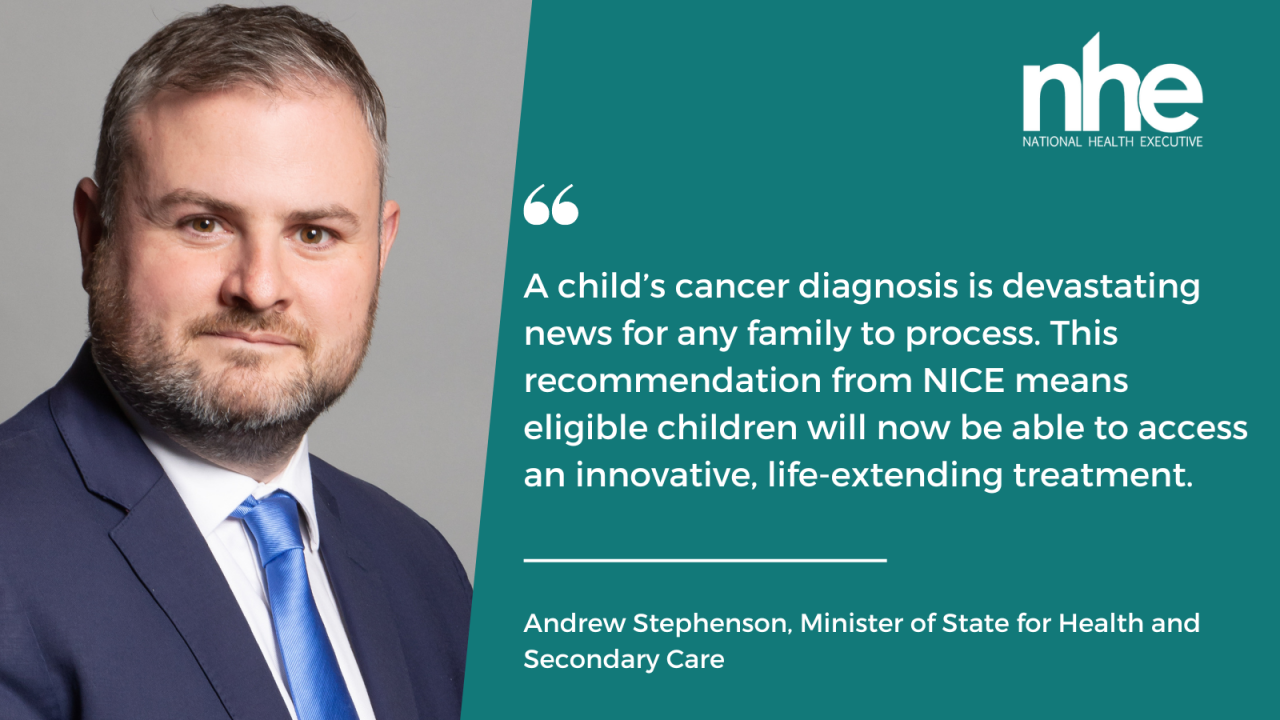A new targeted drug combination treatment, described as a ‘step-change in care’ for children and young people with an aggressive form of brain cancer, has today been recommended by the National Institute for Health and Care Excellence (NICE).
Dabrafenib, marketed as Finlee, in combination with trametinib, which is sold as Spexotras, (both made by Novartis) is being recommended in final draft guidance for treating BRAF V600E mutation-positive glioma.
Gliomas are the most common type of brain cancer in children and young people. They develop from the glial cells that support the nerve cells of the brain and spinal cord. BRAF is a specific gene mutation which causes the body to make faulty proteins, in turn causing brain tumours.
It is classified as either low-grade glioma (LGG), where tumours do not grow or grow slowly, or high-grade glioma (HGG), where tumours grow more rapidly and is usually fatal. The current treatments for people with glioma are limited and include:
- Surgery
- Radiotherapy
- Chemotherapy
- Best supportive care
Patient experts told NICE that treatment for a potentially life-threatening brain tumour glioma can delay children’s education, restrict socialising, and have a lasting emotional impact.
They highlighted the side effects of chemotherapy, which can lead to people with glioma and their caregivers choosing to stop treatment.
It is estimated that around 30 children in England could be eligible to take dabrafenib with trametinib. Dabrafenib is given as tablets which are taken twice a day and trametinib is an oral solution which is taken once a day.

The so-called cancer growth blocker medicines target the proteins affected by the BRAF gene and slow down or stop the development of tumours. The combination is already used in several other forms of cancer.
The drug combination can be used by patients with LGG who are eligible for systemic treatment or for patients with HGG who have received at least one course of radiation or chemotherapy treatment.
Clinical trials show the new treatment stalls the tumour growth in people with LGG for an average of more than two years – three times longer than current drugs.
NICE’s medicines evaluation director, Helen Knight, said: “I am pleased we can recommend this new combination therapy that can give children longer without their tumour growing and offers them and their families a better quality of life.
“NICE is determined to get the best care to patients fast and ensure value for the taxpayer. This recommendation follows the licensing of both treatments for this type of cancer within the last three months.”
NHS England’s national clinical director for cancer, Professor Peter Johnson, commented: “It is fantastic news that this new and kinder precision treatment for children and young people with this type of brain tumour will now be available on the NHS.”
Peter added that it is a “significant step forward” which will help children have a better quality of life.
The company has a confidential commercial arrangement for each medicine through a simple discount patient access scheme which makes dabrafenib plus trametinib available to the NHS with a discount.
Image credit: iStock



















